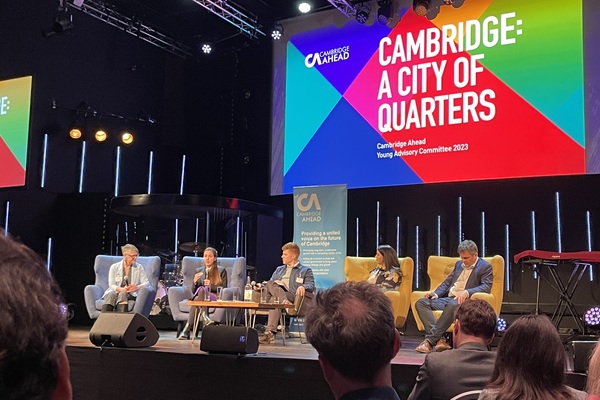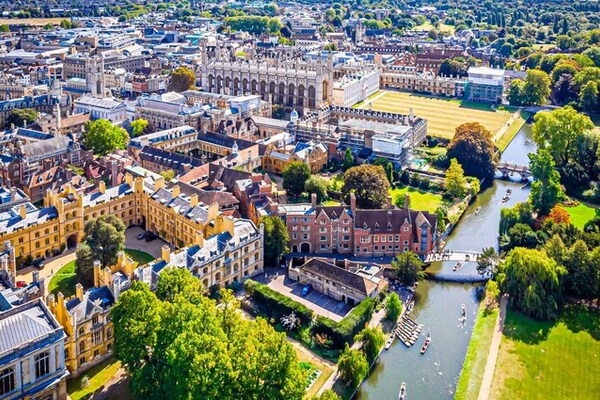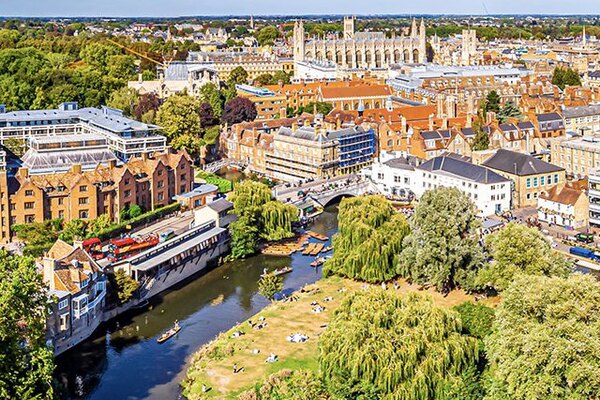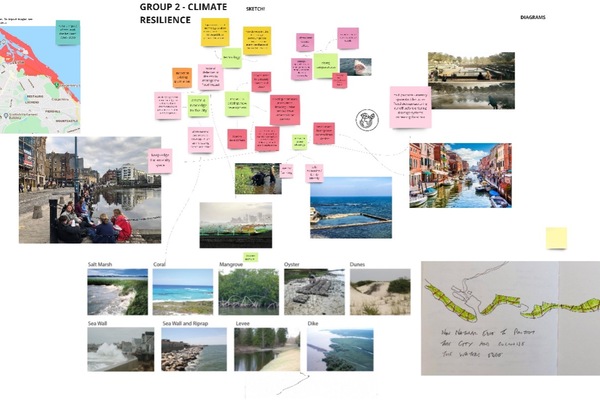As the Academy of Urbanism prepares for its Annual Congress in Cambridge in June 2023, Cambridge Ahead too is reflecting on its 10 years advocating for the sustainable and inclusive growth of the city’s economy. Cambridge has seen incredible and rapid change in the last twenty years, with a 33% population growth since 2001, and shift in its economic makeup towards high value, internationally facing knowledge intensive industries. Step out of Cambridge’s main railway station today and compare it with ten years ago, and the ambition our city proudly wears is evident.
But the success and ambition of Cambridge, and associated changes in our urban fabric, have presented both opportunities and challenges. Whilst the life-sciences, tech and IT clusters have made Cambridge the destination for international innovation outside London, ensuring that the externalities of growth are sustainably managed remains a pertinent issue for the public and private sectors alike.
As others have written before, Cambridge has some of the highest housing prices outside London, the average house price being nearly 10x the average annual salary. Cambridge has the largest travel-to-work-area in the UK, and thus its roads suffer from heavy congestion and associated poor air quality. When Cambridge Ahead launched in 2013, transport, housing and education were identified by our founding business and academic members as key concerns that threatened the sustainable and inclusive growth of the city region. Fast forward to 2023, these concerns feel more relevant than ever. Despite significant investment into our infrastructure and social housing from Government, delivery of major schemes is taking significant time whilst the city’s economy and population continue to grow year on year.
In March 2023, Cambridge Ahead’s Young Advisory Committee of city workers aged under 35 launched its ‘Cambridge: A City of Quarters’ report. In this, we asked what the future of our city could look like. Drawing on extensive engagement across Cambridge’s communities around the city, a message was clear: for growth to be beneficially felt at the local level, public engagement and grassroots action are necessary to build community strength alongside economic growth. As new centres in Cambridge emerge and develop, ensuring physical spaces are provided to support social cohesion and nurture a sense of place amongst Cambridge’s people is crucial. Planning for communities whilst enabling innovation sites like Cambridge Biomedical Campus and West Cambridge Campus to fulfil their internationally cutting-edge potential is a necessary balancing act along Cambridge’s journey.
The Annual Congress provides a valuable opportunity not only for Cambridge to learn from communities’ experiences internationally, but also for practitioners to see a city-in-the-making. In Cambridge, you’ll discover the important role that partnerships have played over the last decade for facilitating and managing change, whether public-private or between academia and businesses. You’ll also discover a city brimming with potential: a hive-mind using innovative governance and technological approaches to be the best small city in the world.








